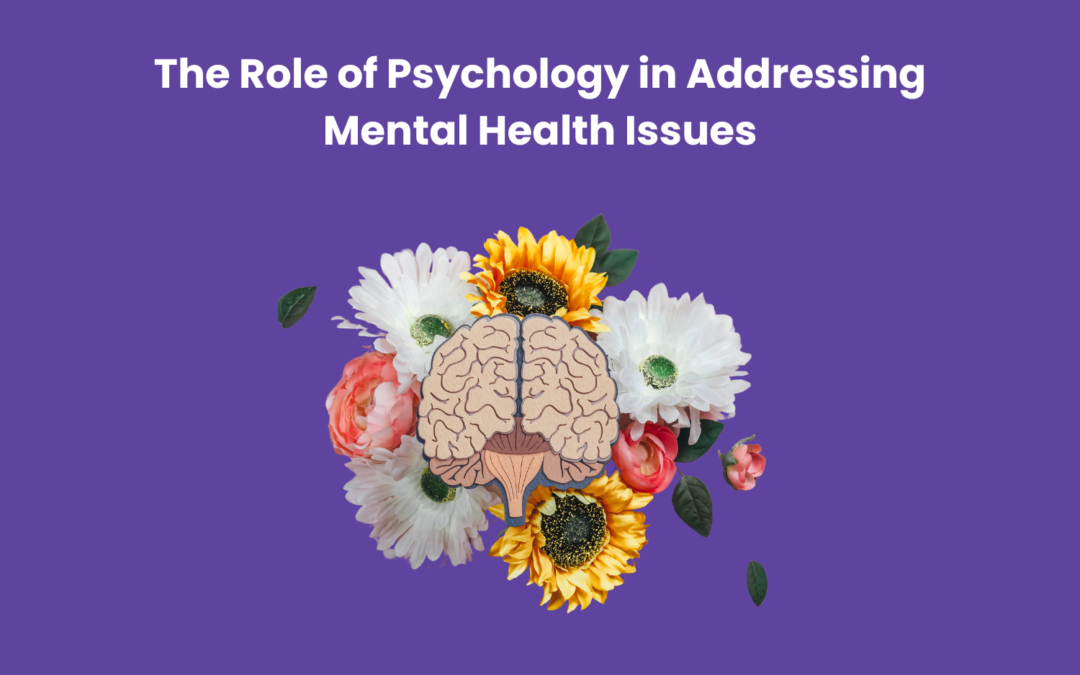In Mental Health, the field of psychology stands as a beacon of understanding, support, and healing. But What is Psychology, and how does it play a crucial role in addressing mental health issues? Psychology is the scientific study of the mind and behavior, delving into the intricacies of human thoughts, emotions, and actions. In this blog, we’ll explore the profound impact of psychology in addressing mental health challenges, shedding light on how psychological principles and interventions contribute to the well-being of individuals.
Table of Contents
- What is Psychology?
- Psychology’s Role in Mental Health
- The Intersection of Psychology and Mental Health Education
- Conclusion
What is Psychology?
It is essential to grasp the fundamentals of psychology before exploring its function in mental health. From the study of thoughts and feelings to those of social interactions and aberrant behaviour, psychology covers a lot of ground. It aims to unravel the mysteries of the human mind by investigating how people take in, process, and respond to information.
There are many subfields within psychology, each with its area of emphasis:
- Clinical Psychology: Usually focused on diagnosing and treating mental health issues via talk therapy.
- Counselling Psychology: Dedicated to assisting people in making decisions, growing as individuals, and dealing with difficult life situations.
- Behavioural Psychology: Analyses the process of conditioning and reinforcement in shaping behaviour.
- Cognitive Psychology: Investigates cognitive functions include seeing, remembering, and solving problems.
Psychology’s Role in Mental Health
Diagnosis and Assessment: When it comes to evaluating and diagnosing mental health issues, psychologists are indispensable. They can determine the root causes of a person’s difficulties using interviews, standardised tests, and careful observation.
- Therapeutic Interventions: When dealing with mental health concerns, clinical psychologists and therapists use a wide range of therapeutic methods. To address each person’s specific requirements, they may use humanistic methods, psychodynamic therapy, cognitive-behavioural therapy (CBT), and other similar techniques.
- Understanding and Managing Emotions: With psychologists’ guidance, people can better recognise and control their emotional responses. Helping people learn effective ways to deal with difficult emotions and control their reactions is the primary goal of emotion-focused therapy.
- Behaviour Modification: Behaviour modification approaches are one-way behavioural psychologists can improve mental health. To promote good transformation, it is necessary to reinforce appropriate behaviours while eradicating inappropriate ones.
- Stress Management: Individuals might seek the assistance of psychologists who focus on stress management strategies to better handle daily pressures. Psychological therapies for stress reduction include mindfulness-based therapy and relaxation techniques, among others.
- Supporting Personal Growth: A counselling psychologist is someone who helps people on their path to self-improvement and -discovery. They help people overcome obstacles, make intelligent choices, and live satisfying lives by providing support and insights.
- Group Therapy and Community Support: Psychological services include not just individual counselling but also group and community-based interventions. Under the supervision of a licenced psychologist, people in a group environment can open up about their struggles, receive and provide support, and gain insight from the experiences of others.
- Preventive Mental Health: To prevent mental health problems from becoming worse, the field of psychology helps to identify risk factors and then implements treatments. Conditions may be lessened or even prevented from becoming worse with early detection and education.
The Intersection of Psychology and Mental Health Education
Let’s explore the Intersection of Psychology and Mental Health Education:
- Promoting Mental Health Literacy: When it comes to spreading awareness about mental health, psychology is crucial. Psychologists help build a more educated community and lessen stigma by teaching people about common mental health conditions, symptoms, and services.
- Training Mental Health Professionals: Mental health specialists are primarily trained in the field of psychology. Professionals in the mental health field, including counsellors, therapists, and clinical psychologists, get substantial training to handle various issues.
- Research and Evidence-Based Practices: Mental health practises are grounded on evidence-based research in the field of psychology. Psychologists enhance mental health outcomes via their research, which aids in the creation of more efficient treatments and therapies.
- Advocacy and Policy Development: Advocates and policymakers in the field of mental health are psychologists. The programmes prioritising mental health on a social level greatly benefit from their experience.
Conclusion
When it comes to dealing with mental health difficulties, psychology plays an essential and multi-faceted role. Whether it’s via the diagnosis and treatment of mental health issues, the promotion of preventative measures, or the advocacy for social change, psychology is at the forefront of efforts to improve well-being. The need for psychologists, mental health specialists, and educators to work together is growing as the significance of mental health is acknowledged by both people and society. We can get closer to a community where mental health is fully recognised and supported if we take the time to learn about psychology and its significant influence.

